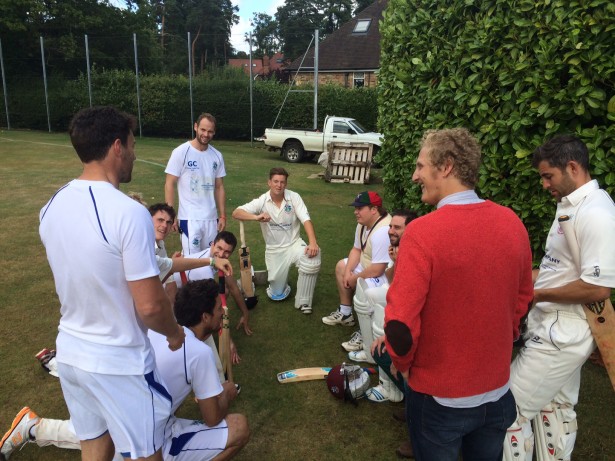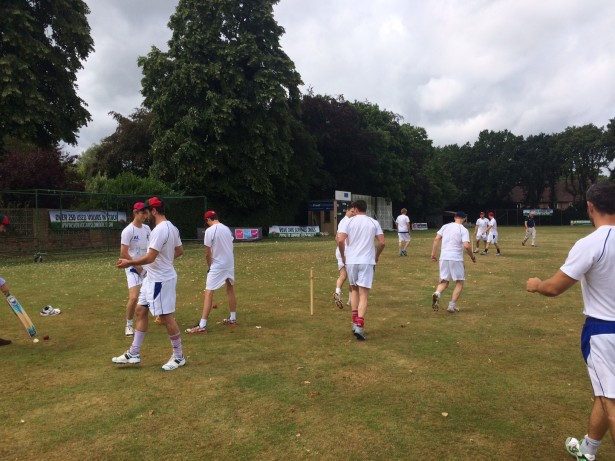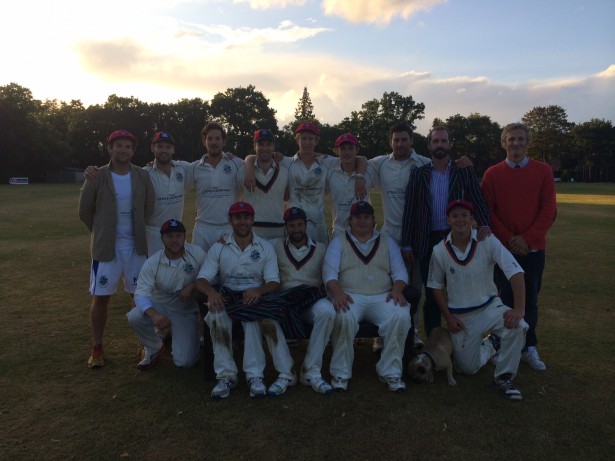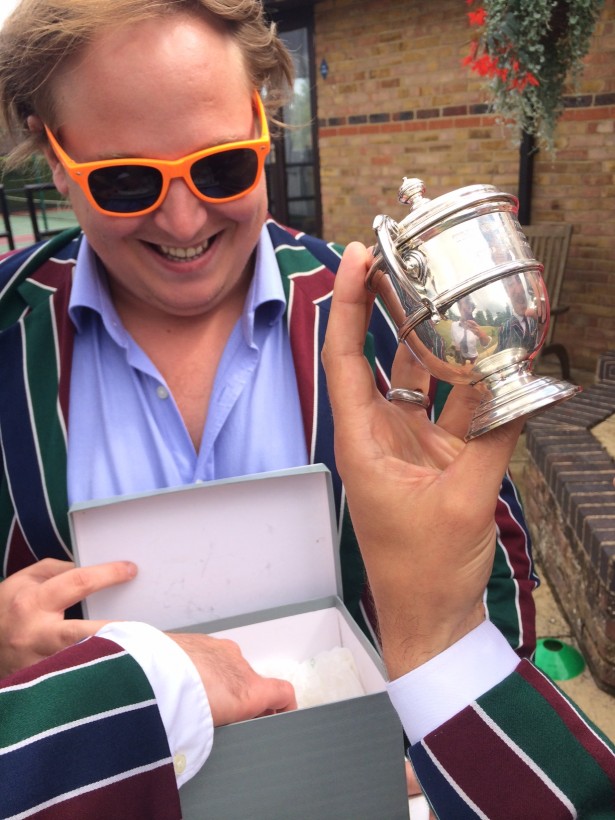Cricketer Trophy Final 2014, Old Millfieldian CC v. Old King’s Scholars CC
The first great literary tracts written in the Middle Ages (other than religious works) were grand chanson de geste. These often recorded great feats in battle, such as the Song of Roland which recalled the heroic deeds of a great knight at the Battle of Roncevaux in 778. Apart from poetry, the Icelandic Sagas detailed the running blood-feuds of the first settlers in that harsh land during the tenth and eleventh centuries. Great challenges met by great men live on today, embellished through oral history and constant re-telling: the final of the Cricketer Trophy of 2014 is no exception. The deeds of the founding members, the struggle through barren seasons, the gradual establishment of fixtures and the creation of a fine reputation garnered on the green fields of battle all equate to our very own piece of cricketing immortality.
It was a wet and dank Sunday on August 10th, but twenty players (Cosker and Brothers had bet on a late start) arrived at the ground ready to try and play a national final, come what may. The prevarications surrounding the eventual start of play at 4pm are not worth covering in detail, but the immaculate new training kit meant that the OM fielding drills flattered to deceive even more than usual. A crucial toss was lost and so, in dazzling sunlight amidst bruised clouds, the Honorary Secretary and Elliot-Square opened the innings after a passionate team-talk. The game had been shortened to twenty overs and the Old King’s Scholars seamers paid a heavy toll for their short bowling in the first four overs. Square showed contempt for one by splicing him back over his head for six and then thumped him for six more the very next ball. Brothers, a lover of the hook, was fed to his strengths and we were on 46 in the fourth over. Inevitably, such momentum stalled as we lost the flashing swordsmen at the top of the order in quick succession for entertaining twenties. Hopper and Easton fell cheaply when the bowlers found their lengths on a green wicket. Vickery, Jones and Webb all assisted the uncharacteristically sensible Cosker in compiling a competitive target. Cosker’s cheeky step to the off and fast hockey-player’s hands meant the OMs had a total of 121 at the end of the innings. It is worth noting that Morris’s suicidal run out on the last ball of the innings left us at 121 for 9. With wickets being a deciding factor in the event of a draw, his lusty indiscretion could have been most costly.
Webb opened the bowling with aggressive intent. His control of the ball on such a slow wicket was admirable and was crucial in thwarting the power play benefits available to the opposition. He was ably backed-up by Elliot-Square whose fluid action created swing that troubled the top order as he took two wickets in the second over. At 2 for 2, the OKS opener and number four went about rebuilding the innings. After a rain break, the finger-spin of Easton, Vickery and Standfield held admirably in testing conditions. Vickery was especially accurate and the fielding produced by the side would have brought a tear to the eye of the great HOMO (Honorary Old Millfieldian Officer) himself, RME. That is, until the crucial wicket of the opening bat was shelled at mid-wicket by the skipper. Many observers thought the game was up at that point; the OKS only needed six an over with seven wickets in hand. However, the cricketing gods were with us, and Hopper took an outstanding steepler of a catch to dismiss the dangerous opener for 49 in the next over. It was then the OMs smelt blood. Fielding like dervishes (Easton with a superb run out, Hopper, Morris and Jones with some excellent stops), bowling accurately and moving swiftly between overs, the opposition were left requiring 10 from the last over for victory. Square bowled this very well. Despite a fifth-ball, waist-high full bunger worrying the Millfield faithful, Canterbury were eventually left five runs short of their target.
After clapping the opposition from the field (chivalric codes were present at Roncevaux and are still maintained by the Old Millfieldians today), photographs, presentations and cheap champagne followed. A quiet moment was taken by Brothers, Jamieson and Jones: nearly five years ago a quiet dinner and glass of Lagavulin created this wonderful club and they all agreed it was a fine decision. After a season of great triumph and disaster we shall all pack up our bats until next year, not forgetting the possibility of further great adventure in 2015.
Molire Molendo – which, by the way, may be translated as ‘succeed through grinding’, something the players tested at The Ship in Wandsworth after the match!
MIJ
11.8.14








 Latest Tweets
Latest Tweets


